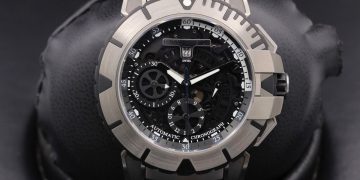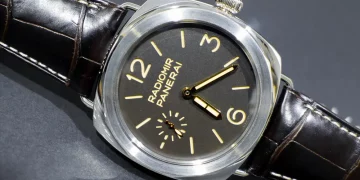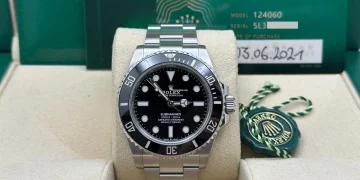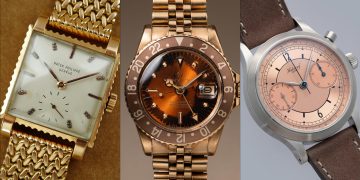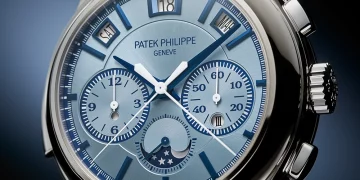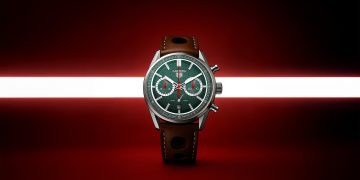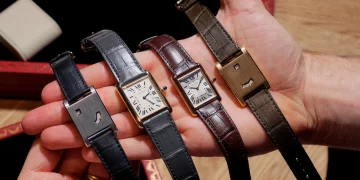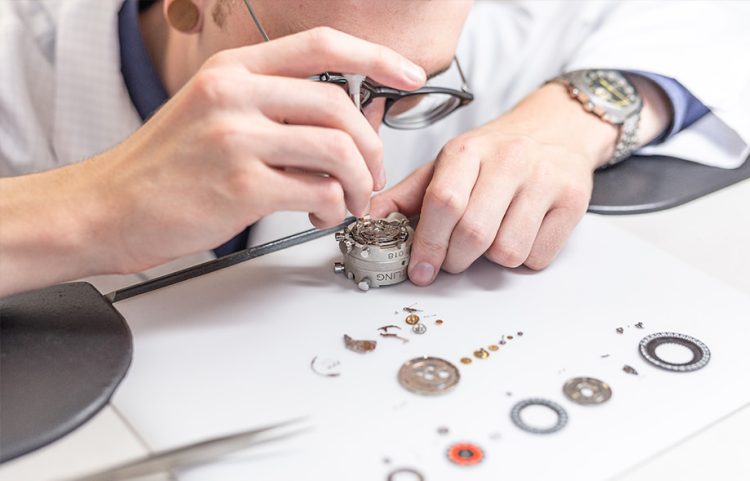The movement of a watch, often referred to as its “heart”, is the intricate mechanism responsible for keeping time accurately. Whether it’s a mechanical, automatic, or quartz movement, maintaining this complex system is essential for the longevity, precision, and performance of your timepiece. Regular servicing ensures that your watch operates smoothly, but neglecting maintenance can lead to significant issues that affect both the accuracy and the overall lifespan of your luxury watch.
In this article, we will explore why regular movement maintenance is crucial, the consequences of neglecting it, and the steps you can take to ensure your watch continues to function optimally for many years.
1. What Is the Watch Movement and Why Does It Matter?
The movement of a watch refers to the internal mechanism that powers it, and it plays a pivotal role in timekeeping. It is composed of hundreds, sometimes thousands, of tiny components like gears, springs, and levers, all working together in perfect harmony to keep the watch ticking. There are two main types of movements:
- Mechanical Movements: These require manual winding, and are often found in traditional watches. They are powered by a mainspring, which releases energy to power the hands. These movements require careful maintenance to ensure the components do not wear down over time.
- Automatic Movements: These are similar to mechanical movements but have a self-winding feature. The rotor inside the watch moves as you wear it, which winds the mainspring. Even though automatic watches don’t require manual winding, they still need regular servicing to keep the rotor and internal components in good working order.
- Quartz Movements: These are powered by a battery and use a quartz crystal to keep time. Though less complex than mechanical or automatic movements, quartz watches still need occasional care, such as battery replacements and waterproof seal checks.
Whether mechanical, automatic, or quartz, the movement is the soul of the watch. Without it, the watch wouldn’t be able to keep time, which is why regular maintenance is essential for preserving the performance of the watch.
2. The Importance of Regular Movement Maintenance
Like any finely tuned machinery, a watch movement requires regular maintenance to perform at its best. Think of it as taking care of a high-performance car engine. If the engine is not serviced and cleaned regularly, it will start to break down, lose efficiency, and eventually fail.
Here’s why movement maintenance is so important:
1. Prevents Wear and Tear on Internal Components
- Lubrication: Over time, the lubricants inside the movement can break down and dry out. Without proper lubrication, the friction between components increases, leading to excessive wear and eventually causing parts to break. Regular servicing ensures that the lubricants are replenished and the parts are properly adjusted, reducing friction and wear.
- Cleaning: Dirt, dust, and moisture can accumulate in the movement over time, affecting the gears and other delicate components. Cleaning the movement ensures that it remains free of debris, which can otherwise cause blockages or hinder the smooth movement of the gears, leading to inaccuracies in timekeeping.
2. Ensures Accurate Timekeeping
- Watches with mechanical or automatic movements are designed to be extremely precise, but even the smallest amount of friction or misalignment can throw off the accuracy. Regular maintenance allows the watchmaker to check for any discrepancies and recalibrate the movement to ensure the watch keeps time as accurately as possible.
- For quartz watches, while they tend to be more accurate than mechanical watches, they still require maintenance such as battery replacements and seal checks to maintain their precision.
3. Preserves the Watch’s Value
- Luxury watches are often considered investment pieces. If a watch is not properly maintained, it can lose its value. Potential buyers are more likely to invest in a watch that has been regularly serviced and kept in good condition. Keeping the movement properly maintained ensures that the watch retains its value over time, especially if you ever decide to sell or pass it on to a future generation.
4. Extends the Lifespan of the Watch
- Regular maintenance is crucial for the longevity of your watch. By addressing small issues early, you can prevent major problems that might require expensive repairs or, in some cases, result in a complete failure of the movement. Watches that are serviced regularly can last for decades or even generations, while those that are neglected may start to degrade much earlier.
3. Consequences of Neglecting Movement Maintenance
While regular maintenance keeps your watch in peak condition, neglecting it can lead to a range of issues that could affect both the performance and longevity of the timepiece.
1. Increased Wear and Tear
- Without proper lubrication and cleaning, the movement’s parts can wear out much more quickly. Over time, this friction can cause damage to the gears and springs, leading to a failure in movement. For mechanical and automatic watches, this means the watch will lose time, or in the worst-case scenario, completely stop functioning.
2. Inaccurate Timekeeping
- If your watch has been neglected for a long period, it may begin to show inaccurate timekeeping. For instance, a watch that was once precise may start to gain or lose minutes every day. While a small difference may not seem significant at first, over time, the cumulative effect can be noticeable.
3. Irreparable Damage
- One of the worst outcomes of neglecting maintenance is irreparable damage. If dirt or moisture has infiltrated the movement, it can cause corrosion or other damage that might require the entire movement to be replaced. This can be a very costly repair and may not always be possible, especially for high-end mechanical movements.
4. Decreased Watch Value
- Watches that have not been regularly serviced will show visible signs of wear, which can drastically decrease their market value. Collectors and potential buyers are generally more interested in watches that are in pristine condition and have complete service records.
5. Shorter Lifespan
- Just as neglecting to maintain your car can shorten its lifespan, neglecting to service your watch will do the same. A poorly maintained watch may last only a few years before significant problems arise, while a well-maintained watch can last for decades, retaining its functionality and value for much longer.
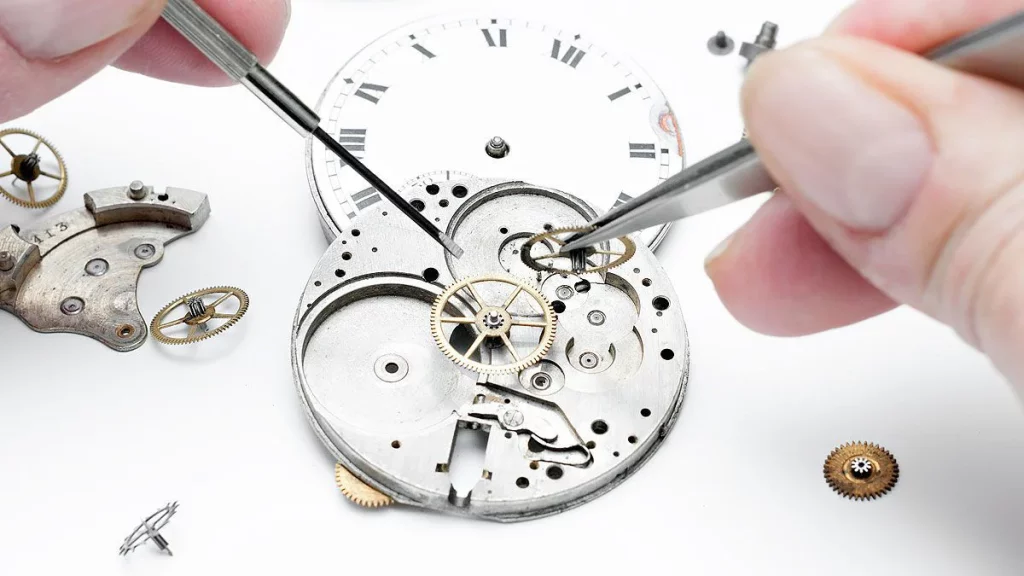
4. What Does Watch Movement Maintenance Involve?
The maintenance of a watch movement typically involves several critical steps, all of which are performed by a professional watchmaker with specialized tools. Here’s what a typical maintenance service entails:
1. Disassembly and Cleaning
- The watch is fully disassembled, and all parts of the movement are carefully cleaned using specialized cleaning solutions to remove dirt, dust, and old lubricants.
2. Lubrication
- The moving parts of the movement, such as the gears and escapement, are lubricated to reduce friction. The proper application of lubricants is critical, as over- or under-lubricating can cause problems.
3. Checking for Wear and Tear
- The watchmaker inspects the components for any signs of wear or damage. Any worn-out parts are replaced with genuine parts to ensure the movement continues to function optimally.
4. Reassembly and Testing
- After cleaning, lubricating, and replacing any damaged parts, the watch is reassembled. The watchmaker then tests the watch to ensure it is keeping accurate time and is running smoothly.
5. Water Resistance Check
- If the watch is water-resistant, the watchmaker will also check the seals and gaskets to ensure they are still functioning properly.
5. How Often Should You Service Your Watch?
The general recommendation is to have your watch serviced every 3 to 5 years, although this may vary depending on the type of watch, how often it’s worn, and the conditions it’s exposed to.
For mechanical and automatic watches, more frequent servicing may be necessary if the watch is worn daily or exposed to extreme conditions like moisture or dust. For quartz watches, you may only need to have them serviced when the battery is replaced or if you notice issues with the timekeeping.
Conclusion: Protect Your Investment with Regular Maintenance
A luxury watch, especially those with mechanical or automatic movements, is a significant investment, and maintaining the movement is crucial to ensuring its precision, longevity, and value. Regular servicing is the key to preventing damage, preserving the watch’s performance, and avoiding costly repairs down the road.
Neglecting the movement can lead to a range of issues, from inaccurate timekeeping to irreparable damage. By understanding the importance of movement maintenance and taking the proper steps to care for your timepiece, you can ensure that your watch remains a reliable, beautiful companion for years to come.



